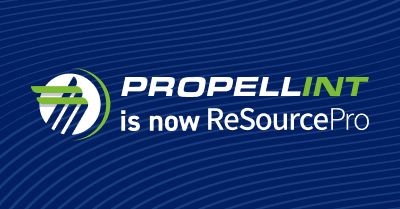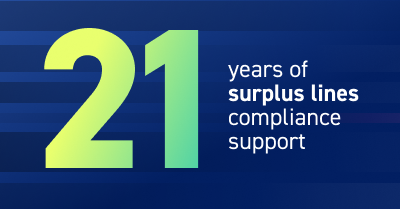Elaine is a Senior Specialist at ReSource Pro Compliance
Insurance is a knowledge-intensive business. Professionals must master not only sales and customer service skills, but also insurance law, regulatory compliance procedures, and of course specific product information. Acquiring this expertise represents a sizeable investment of time and money for both the individual and their employer. That’s why every successful insurance agency needs a robust knowledge management strategy.
Knowledge Management
Tom Davenport defines knowledge management as “the process of capturing, distributing, and effectively using knowledge.” He lists three fundamental tasks that leaders must tackle to prevent critical losses:
- Identify knowledge resources within your business and record that knowledge in a usable way.
- Share knowledge with team members to increase their value to the organization.
- Apply knowledge to promote positive outcomes for current clients and to power future innovation and growth.
Keep in mind that this isn’t a one-and-done task—especially for a heavily regulated industry like insurance. Laws and regulations evolve constantly to accommodate new products, technologies, and business models and to address changing customer needs. Recent economic trends and changing social expectations, though, up the stakes.
The ”Free Agency” Economy
I first encountered this term while reviewing Big I’s 2022 Best Practices Study. The authors compare the increasing frequency with which insurance professionals move from firm to firm to advance their careers to the “free agent” status available to professional and college athletes.
Changing agencies certainly isn’t a new phenomenon, of course. The days of a producer joining an agency and remaining there until retirement are likely gone forever. The point that the study seems to make—and that I’ve observed personally—is a shift from agency hopping being an option to being the preferred method for professional development and career advancement. This is especially true for the much-coveted younger workers who came of age during the first flourishing of the gig economy.
The study also makes the point that producer migration can be a profitable option for buyers unable (or unwilling) to purchase entire agencies due to increased valuations/multiples. Lift-outs, on the other hand, have margins of 40% to 50%. For those unaware of this relatively new term, a lift-out is “the intentional recruiting of a producer from one firm to a new firm with the promise of enhanced economics, generally in the form of book bonuses or equity incentives.”
Challenges to Knowledge Management in the “Free Agency” Economy
Why is today’s economy uniquely challenging for knowledge management? There are several factors at work. Each can have a significant impact on the ability of business leaders to execute Davenport’s three fundamental tasks.
Generational Turnover
The “greying” of the insurance industry and the looming talent gap have long been topics of discussion. The global pandemic, however, accelerated the rate of generational turnover. This, in turn, increased concerns about the loss of decades of institutional knowledge.
Generational differences can complicate efforts to record and share knowledge. Experienced producers and support staff may be reluctant to “give away” the wisdom they spent a lifetime accumulating. Some may also fear being pushed out by younger, less expensive employees eager to make a difference within the organization. Younger workers, on the other hand, may find the methods that long-time employees use to record and communicate knowledge inefficient or unengaging. In response, experienced workers may see their newer colleagues as impatient, dismissive, and needing to be “spoon-fed” information.
The same differences in expectations can impact the customer experience as well. Today, consumers often take “knowledgeable” and “highly skilled” as a given. For them, ease of access is as important as quality. Policyholders also want information broken into shorter, highly targeted content that specifically answers their immediate questions or needs. While they value the expertise that an experienced advisor offers, this relationship is only one service option out of many for them—not the foundation for every interaction.
Professional Development Paradigms
Any insurance professional who’s weathered a previous economic downturn knows that budgets for professional development are often the first expenses to be slashed. At the same time, the shift to remote or hybrid work reduces the opportunities for informal learning, making structured programs more important than ever.
The BPS Study looked at several approaches to professional development. The research shows that agency size strongly correlates with the availability of internships and mentorship programs. The largest agencies were 5 times more likely to offer internships and 3 times more likely to offer formal mentoring than the smallest agencies. The smallest agencies also showed a strong preference for internal technical and sales training (versus external training) compared to their larger counterparts.
Regardless of size, no organization wants to train someone else’s star employee. Given increasing churn rates, business owners often don’t trust workers to stay and provide a reasonable ROI for development activities.
Other Challenges
Another difficulty related to professional development is that employees don’t always see a clear connection between such training and actual advancement within their agencies. This is especially true for women and persons of color. The inequities become even more apparent for those looking to move from middle to senior management. Such circumstances incentivize workers to build their knowledge base at a “traditional” agency and then take that knowledge with them to an organization that reflects their affinity group(s).
Lastly, many business owners look to automation to capture their essential knowledge and apply it successfully in the future. Unfortunately, machine learning/AI systems often perpetuate existing patterns—including biases that have long haunted our industry—rather than truly innovating. The ideal role for insurtech is to assist agents, not replace them. Thus, humans still need to possess the knowledge to understand what questions to query tech systems; the ability to understand the output; and most importantly, the ability to translate that information into language that is useful and engaging for the consumer. That means that the need for knowledge management isn’t likely to diminish any time soon.
Find out how ReSource Pro helps insurance agencies and producers meet their licensing and compliance needs by visiting our compliance page.



